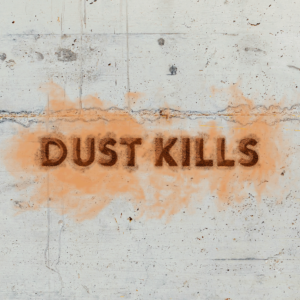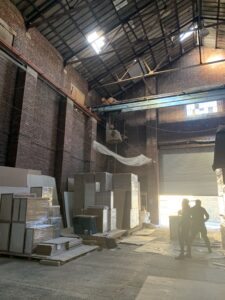Birmingham wall collapse deaths: Directors jailed after five men lost their lives
Two company directors have been jailed after a wall collapsed killing five men – with both firms having to pay combined fines of £1.6million.
Wayne Anthony Hawkeswood and Graham John Woodhouse ran a Birmingham metal recycling business where a wall toppled over and killed five workers.
The pair were found guilty on multiple counts after a five-week trial at Birmingham Crown Court in November last year. They were back at the same court on Monday 15 May where they each received nine-month custodial sentences.

Ousmane Kaba Diaby, Saibo Sumbundu Sillah, Bangally Tunkara Dukuray, Almamo Kinteh Jammeh and Mahamadou Jagana Jagana were all killed when a 45-tonne wall collapsed on them. They were agency workers working at the site occupied by Hawkeswood Metal Recycling Ltd and Shredmet Ltd (now trading as Ensco 10101 Ltd), in the Nechells area of Birmingham.
At nearly 12-feet high, the Vee block wall was built on site and made up of 30 concrete blocks – each the size of a domestic fridge-freezer and weighing the same as a large family car. The blocks are designed to slot together.
The five men were part of a group of eight agency workers brought to the site on 7 July 2016. At around 8am that morning, seven of them began the process of clearing the bay of swarf – metal filings – to make way for more scrap metal.
Just 15 minutes after starting work, the wall collapsed on the five men, killing them instantly. A sixth man suffered serious leg injuries, while another was fortunate enough to have just stepped outside the bay before the wall came down. The eighth member of the team was not in the bay at all as he had gone to another part of the site to retrieve brooms.
An investigation by the Health and Safety Executive (HSE) found the wall had previously been taken down then reassembled. The adjoining bay was full of around 263 tonnes of scrap metal briquettes – each roughly the size of a large tin of vegetables. The combined weight of the machine-pressed metal briquettes was the equivalent of six fully loaded HGVs.
Following the incident, the defendants appointed structural engineers who carried out an assessment, the result being a reduction in wall heights and bays being clearly marked with maximum fill lines.
Both directors were found guilty of four charges each – failing to discharge the duty to which they were subject by virtue of section 2(1) and 3(1) of the Health and Safety at Work Act 1974.
Hawkeswood Metal Recycling Limited and Ensco 10101 Limited (known at the time as Shredmet) were also found guilty of the two identical counts bringing the total number of convictions to 12.
Hawkeswood Metal Recycling was fined £1million while Ensco 10101 Limited must pay £600,000. The judge also ordered £775,000 to be paid in prosecution costs.
Speaking after the sentencing, HSE Principal Inspector Amy Kalay said: “I hope the families and friends of the men who died find some comfort in today’s sentencing.
“The investigation into this incident was long and complex. Five men lost their lives in the most appalling of circumstances. Their deaths should not have happened. They went to work to earn a wage; that cost them their lives.
“These five men were placed into a working environment that was fundamentally unsafe. The failings of the companies and individuals brought to justice today were responsible for this tragedy.
“Health and safety regulations save lives. We will always take action against those who fail to protect their workers.”
Notes to editors
- The Health and Safety Executive (HSE) is Britain’s national regulator for workplace health and safety. We prevent work-related death, injury and ill health through regulatory actions that range from influencing behaviours across whole industry sectors through to targeted interventions on individual businesses. These activities are supported by globally recognised scientific expertise.
- More information about the legislation referred to in this case is available.
- Further details on the latest HSE news releases is available.
- HSE guidance on scrap and metal recycling is available.




